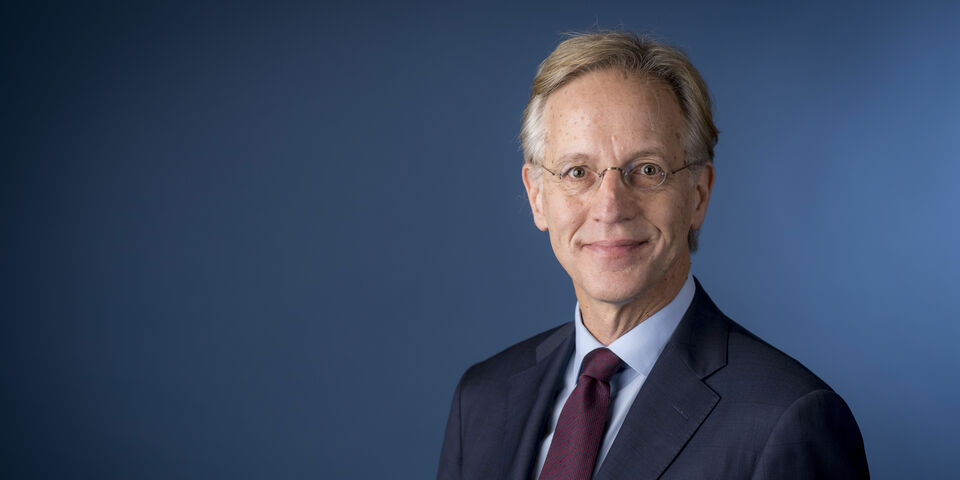Dijkgraaf praises internationalisation and his own continuum
Outgoing Minister of Education Robbert Dijkgraaf (D66) has taken advantage of the start of the new academic year to defend internationalisation. “We should see it as a huge compliment that so many people want to study and teach in the Netherlands.”
“There’s nothing wrong with your ears. Today, in this music theatre in Enschede, I’m singing internationalisation’s praises”, outgoing Minister Dijkgraaf said earlier today in a speech at the University of Twente. “We should see it as a huge compliment that so many people want to study and teach in the Netherlands. We are one of the top academic destinations. This says a lot about the quality of education in the Netherlands. And we really need that international talent, particularly for our strategic growth sectors, such as technology.”
Over the past few months, internationalisation of higher education has met with a lot of criticism and scepticism. Dijkgraaf is aware of the ‘drawbacks’. Examples he mentions are the overcrowded lecture halls, teacher shortages and lack of student rooms.
Smart
More than that, however, he sees opportunity. “We have to be smart about maintaining accessibility and high quality while at the same time cherishing and promoting the Dutch language”, he argued. “And do a better job retaining the international talent for our labour market.”
He also briefly addressed the international students in English with these words of assurance: “We love you so much that we want to keep you here!”
Dijkgraaf is preparing a bill that will increase the possibilities of keeping the intake of international students in check. It’s online, so everyone can react to it.
Programmes, for example, are given the option of imposing limits on the number of students taking the non-Dutch-taught language track, whilst keeping the Dutch-language variant open to anyone. Universities in particular had been asking for these kinds of options for a while already. A national coordination element will also be added.
Controversial
If the plans proceed, that is. This week the House of Representatives will talk about which plans and bills merit further discussion and which are to be declared ‘controversial’. Controversial bills will only be dealt with after the elections.
Dijkgraaf hopes the bill on internationalisation will be unaffected by this political process, so “we can start on the required instruments and coordination shortly”.
It will be touch and go. There are parties, including Pieter Omtzigt’s Nieuw Sociaal Contract, that feel the plans aren’t far-reaching enough. That being said, these parties don’t want things to be delayed either. It may well be that they are willing to take a first step now, even though they might have more influence after the elections.
Higher, lower
Dijkgraaf also went into another topic that’s close to his heart: the distinction between secondary vocational education (mbo), higher professional education (hbo) and academic education. Rather than looking at what’s ‘higher’ and ‘lower’, he likes to place the types of education on a continuum.
“Within this continuum, everyone should be able to develop optimally”, he told his audience, “with someone’s unique personal talent determining their learning pathway.”
“The history of education can be read as a permanent underestimation of the potential in our society”, he asserted. “If you were a woman, not in the right social class or living outside of town, your chances of going to school were next to none.”
Tough choices
It remains to be seen what his vision means in practice. Dijkgraaf says there are tough choices up ahead. According to him, many young people feel social pressure to attend university, although they would do better at an institute for hbo or mbo. That’s what research universities themselves are saying as well: part of their students would be better off at a university of applied sciences (hbo level).
“The individual freedom to choose what you want to study is an important right”, the Minister stresses. “Just like freedom of education and academic freedom. But we also want young people to realise their full potential. And to be able to find a job with a future upon completing their education. Nobody wants to end up in a dead-end street.”


Discussion